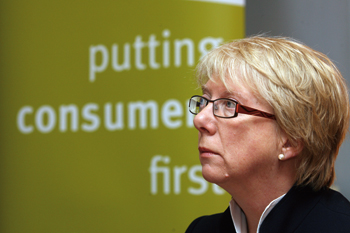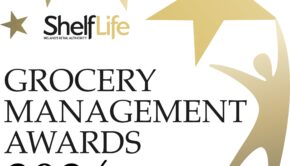Value for our money?

The latest NCA survey sparked off fresh debate about its tactics but the more pertinent question is whether it justifies its own price tag to the overstretched taxpayer
20 April 2009
The National Consumer Agency was established in May 2007,
following the recommendations of the Consumer Strategy Group (CSG) in 2005.
Ann Firzgerald was appointed chairman of the CSG by the Minister for Enterprise, Trade and Employment, and charged with the task of drawing up proposals for a national consumer strategy.
In its report the CSG concluded that "consumer power is weak in Ireland compared with other highly developed countries" and that elsewhere less is spent on protection and enforcement and more on "championing the consumer’s cause". In other words, empowering consumers through information and raising awareness. Recognising that empowered consumers play a vital role in moderating the market and driving competition, the CSG stated that a serious effort was required to "shift the balance of power towards consumers" and subsequently create a healthier economic environment for all stakeholders.
The report, which formed the blue print for the NCA, suggested five main activities by which the new National Consumer Agency would transform Irish consumers into more confident and powerful actors within the economy: research, advocacy, information, enforcement, and education and awareness. The NCA would subsume the Office of the Director of Consumer Affairs (ODCA), and would raise the profile of consumer issues in Ireland, giving consumers a stronger voice.
All perfectly viable and sound proposals most would agree. In fact, the majority of businesses and the economy and would undoubtedly benefit from having a more empowered, engaged consumer base. The question is: does the NCA succeed in creating a more powerful consumer culture that benefits the economy? Secondly, how much does it cost the taxpayer and is it all money well spent?
Good consumer advocates
When the NCA subsumed the ODCA it also took over its €4m budget, which was to be supplemented with "additional resources". Research, it seems, is the principle function, underpinning all other activities, and the mainstay of day-to-day operations. Although certain research projects have to be outsourced, "as appropriate."
In the only set of fully audited accounts available, those from 1 May to 31 December 2007, consultancy services totalled €121,173. Not really alarming considering the scope and scale of the work of the NCA; informing policy and regulation, conducting cross-border research, collecting and analysing consumer data, and more besides.
Providing information is another major function at the agency, the two main organs of which are the NCA’s website ConsumerConnect.ie – which hosts its online recession resource ConsumerValue – and its hotline, which is outsourced to a call centre. For the eight months in the 2007 this call centre accounted for €425,750. Again, this could be accepted as a reasonable sum considering the volume of queries (76,000) that was dealt with by NCA during that time. The agency also informed us that the helpline handled in the region of 80,000 calls in 2008.
The NCA has also had some triumphs as a consumer advocate. For example, it successfully intervened on behalf of consumers who had booked flights to the USA at a certain price, which the airline refused to honour.
In addition, the agency has engaged with airlines on "a wide range of anti-consumer issues" and has "done some work looking at the constituent elements of the various fees/charges." It has cast a similarly stern eye over the motor industry and extracted various undertakings from traders in the interests of consumers.
The NCA has also been very active on the enforcement front, where took over from the ODCA, and indeed has even greater powers. Up to December 2008, it took action in 87 cases, including: seven prosecutions for unlawful practices; eight undertakings from traders; 28 compliance notices; and 44 fixed payment notices. In addition to this, in July 2008 the NCA "named and shamed retailers against whom actions had been taken" and says it plans to do the same again for those caught in the second half of last year.
Mixed messages
In relation to all of these achievements the NCA should be given its due; it is serving the Irish consumer well on these fronts. However, as commendable as this is, it doesn’t add up to a consumer culture change that has filled Irish shoppers with confidence and strengthened the economy.
In fact, it could be argued that its most high profile work to date has added to the hysteria that is bleeding our economy at present, and has served to communicate very confusing and misleading messages about the Irish grocery offer. Furthermore, it has cost the Irish taxpayer a tidy sum for the privilege.
The NCA’s greatest claim to fame so far, and the initiative that has won it the most column inches, is its price comparison surveys. The agency publishes two a year, each time with the same conclusion; shopping around is the best way to find value.
In its February 2008 survey, it criticised the four major multiples in Ireland for offering virtually identical prices across all categories, and praised Supervalu as a group for competing with them. In its most recently published survey however, it accused Supervalu of having the most expensive supermarket in Ireland.
This is most certainly confusing and misleading, and hardly likely to inspire confidence. Setting aside for a moment the fact that these price surveys determine value for money based solely on price – which is misguided thinking at best – they also blatantly ignore the real value that is on offer through retailers’ price-cutting schemes and ongoing special offers. In response to this complaint the NCA conceded: "Special offers are noted in the survey but prices are re-adjusted to show the full price…while recognising the role of special offers, the NCA would prefer to see sustained price cuts."
Materially damaging
According to the NCA, these surveys "are having a material effect". Recent research commissioned by the agency "showed that 56% of grocery shoppers are shopping in a particular store based on price and that convenience is no longer the primary reason for choosing a particular grocery store."
To say the least, it’s a bit of a stretch to claim credit for this development in the midst of the deepest recession the country has seen for almost a century. More significantly though, the NCA does not specify in which country these consumers are doing their more price-conscious shopping.
Last June the NCA published a survey comparing grocery prices between the Republic and North of Ireland. Once again, prices were compared, value was equated with cheapness, and no cognisance was taken of the substantially different cost bases of the two economies being compared.
In the 12 weeks to end of February 2009 it is reported that a quarter of a million Irish consumers crossed the border to do their shopping, regularly causing up to two-hour tail backs in Newry and Enniskillen in their hysteria for cheaper groceries.
In 2008 Ireland lost an estimated €550m in sales to Northern Ireland, and stands to lose an estimated €100m in VAT on alcohol alone in 2009. Asda in Enniskillen has become the sixth highest grossing store in entire global Wal-Mart empire, and Asda and Sainsbury have taken a 2.5% share of the Irish grocery market without having outlets here.
An even worse outcome has been the closure of Irish convenience stores and supermarkets all along the border, including Superquinn and Dunnes Stores in Dundalk at the cost of over 100 jobs
Costing us dear
These are injurious costs for the Irish State to bear at this particularly difficult time, and it is very unfortunate that the NCA has played a roll in exacerbating them. In that context, its cost appears far from representing value for Irish taxpayer’s money.
In its eight months operating in 2007, the NCA’s wage bill came to €2,034,001, plus an additional €485,368 in pensions; a total of €2,519,369. Breaking that down among the agency’s 59 staff – 55 of whom are civil servants on secondment from the Department of Enterprise, Trade and Employment, and three of whom are on secondment from Forfás – that is an annualised average salary of €69,000 per staff member, with pension contributions at a rate of between 25 and 30%. This figure does not include the €117,206 paid out in board members fees.
When comparing this with the 12 month wage bill (€2,633,101) for the ODCA’s 62 staff members, it is evident that the NCA costs the Sate more in compensation for its work. Another discrepancy existed between the cost of its accommodation for 59 staff (€408,530 for eight months) versus the cost of the ODCA’s office premises (€177,231 for 12 months, 2006). When asked to explain these cost differences, the NCA made no response.
The NCA’s eight month operation in 2007 received State funding in excess of €5 million, although its total operating budget is currently estimated to be in the region of €10 million. While we could not take away from the work done by the agency, it has far from achieved its goal of creating an empowered consumer culture that has a positive impact on the economy.
Instead it appears to be cheering on a race to the bottom which is costing us dearly. Our advice to the government is to shop around for a more cost effective consumer strategy, one that adds value instead of diminishing it, and endeavours to drive a positive consumer culture that comprehends true value for money.



 Print
Print






Fans 0
Followers